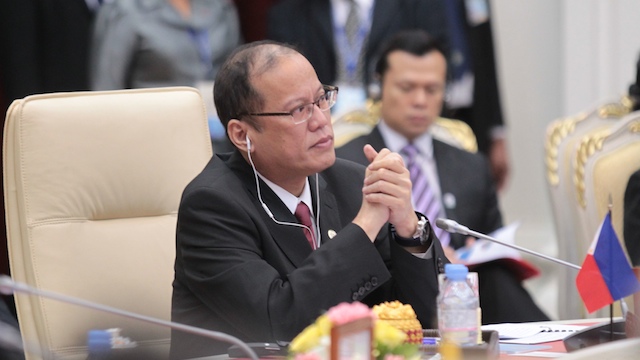
Cambodia, the chair of the Association of Southeast Asian Nations (ASEAN), said that all 10 members of the bloc had agreed at a leaders' summit Sunday not to "internationalize" their disputes over rival claims to the South China Sea.
The apparent deal would have been a victory for China, which has long insisted that countries such as the Philippines should not seek support from the United States.
But President Benigno Aquino III insisted he and one other country, which diplomats said was Vietnam, had not agreed and that Cambodian Prime Minister Hun Sen should not have promoted the alleged ASEAN "consensus."
"While the Philippines was for ASEAN unity, it has the inherent right to defend its national interests when deemed necessary," Foreign Secretary Albert del Rosario told reporters, quoting Aquino's comments to his fellow leaders on Monday.
Del Rosario said the Philippine delegation had sent a letter to all other ASEAN leaders to emphasize that there was no consensus.
Rules must be followed
Aquino himself called in a separate speech for rules to be followed in order to enhance maritime security and ensure freedom of navigation in the South China Sea.
"The rule of law, such as that enshrined in the 1982 United Nations Convention on the Law of the Sea (UNCLOS), must therefore be the bedrock of engagement with other members of the community of nations," Aquino said during the 15th ASEAN-Japan Summit on the sidelines of the 21st ASEAN Summit.
The Philippines will continue to uphold this principle in its engagement with all other concerned parties "as the region strives to resolve overlapping maritime claims" in the South China Sea, the president added.
"We must all work to ensure that mechanisms are in place, and are utilized to resolve tensions, that economic pressure, which can sometimes be perceived as coercive, is not used as an approach to settle disputes."
PH, Vietnam vs Cambodia
ASEAN members Vietnam, the Philippines, Malaysia and Brunei, as well as Taiwan, have claims to parts of the sea, which is home to some of the world's most important shipping lanes and believed to be rich in fossil fuels, but China insists it has sovereign rights to virtually all of the sea.
Tensions have risen steadily over the past two years with the Philippines and Vietnam accusing China of increasingly aggressive diplomatic tactics to stake its claims.
An ASEAN foreign ministers' meeting in Phnom Penh ended in July without issuing a joint communique for the first time in the bloc's 45-year history because of divisions over how to handle the issue.
The Philippines and Vietnam had wanted the communique to make specific reference to their disputes with China.
However, Cambodia, the hosts of the talks and a close China ally, blocked the moves.
Tensions over the issue could rise further on Monday when US President Barack Obama arrives in Phnom Penh to join in the East Asia Summit, a two-day event gathering the leaders of ASEAN, the United States, China and six other nations.
Obama has previously angered China, and emboldened the Philippines, by calling for the rival claimants to agree on a legally binding code of conduct to govern their actions over the sea.-Rappler (November 19, 2012 6:53PM)

No comments:
Post a Comment